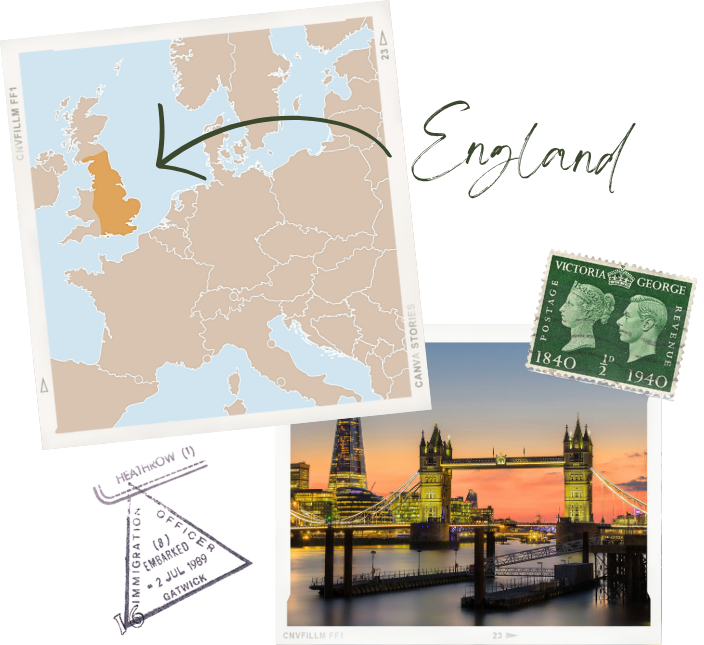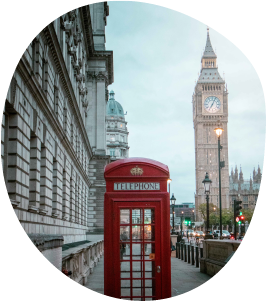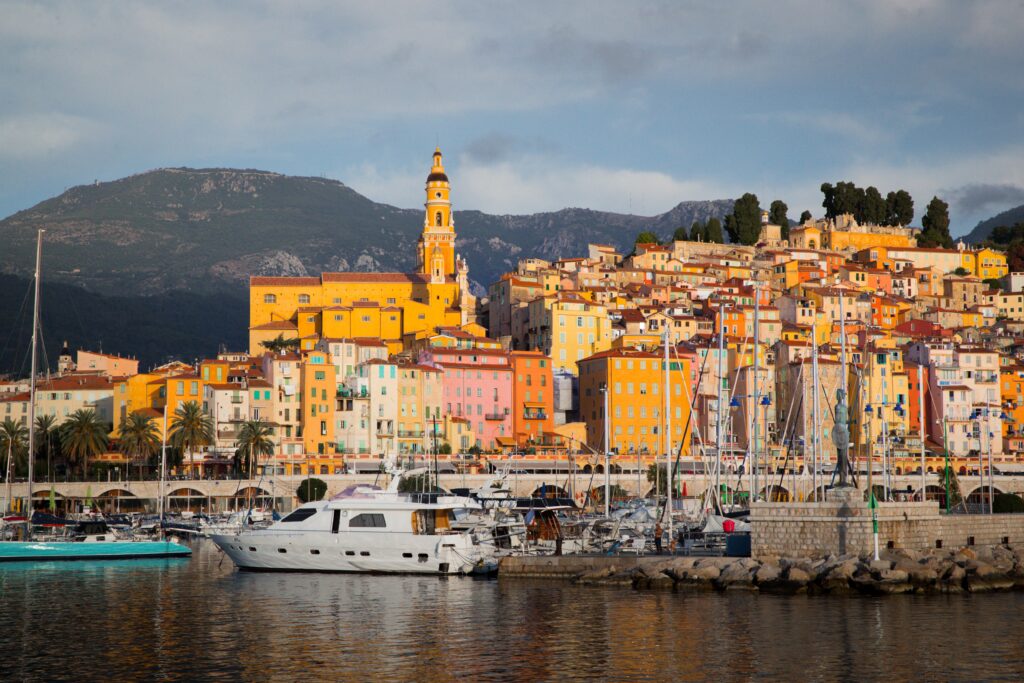VISIT England
From the bustling megalopolis of London to charming storybook-like villages in the Cotswolds, England is an eclectic country present in many travellers’ bucket lists
Currency
£ - Pound sterling (1£ ≃ 1,1€ ≃ 1,21$)
POPULATION
56 millions
MAIN LANGUAGE
English
AREA
130,279 km²
TIME ZONE
UTC / UTC+1
FLAG
🏴


SEE STONEHENGE MONUMENT
One of England's most recognizable landmarks is this prehistoric structure. It is made out of a vertical outer ring of sarsen standing stones that are each about 13 feet high, seven feet wide, and weigh around 25 tons

EXPLORE LONDON
London, arguably the most cosmopolitan city in Europe, is renowned throughout the world for its tremendous selection of historical sites, museums, stores, and restaurants.

SPEND A WEEK-END IN BATH
Beautiful Bath was created as a haven for leisure and relaxation and has been a wellness destination ever since the Roman era. This city is charming, walkable, and historically significant, making it the ideal English weekend getaway location.

GET SOME FRESH AIR IN CORNWALL
On the wild southwest corner of England is the county of Cornwall. One of the top vacation spots in the UK, it is a peninsula that includes untamed moorland and many beaches.

ROAD TRIP THE COTSWOLDS
Recognized as an 'Area of Outstanding Natural Beauty', the Cotswolds are well known for their distinctively English environment of lush green rolling hills, stone walls, woods, and quaint tiny towns and villages.
Pick an English destination

London
The largest city and the hub of the economy, transportation, and culture in the UK

Cotswolds
Area with beautiful landscapes, charming villages, and bustling market towns
Prepare your trip to England
💡 Why visit England?
England offers a unique mix of rich history, iconic landmarks, and vibrant culture. From ancient castles and stately homes to bustling cities and dramatic coastlines, it has something for every traveler. Must-see highlights include the historic Tower of London, the academic city of Oxford, the prehistoric monument of Stonehenge, and the capital, London, a world-class destination in itself.
🪪 Do I need a visa to visit England?
England is part of the United Kingdom and has its own visa policy, separate from the EU and Schengen Area. Citizens of the EU, USA, Canada, Australia, and many other countries can enter visa-free for up to 6 months for tourism. However, some nationalities do require a visa. It’s best to check with the nearest UK embassy or consulate for the most up-to-date information specific to your situation. However, since 2025, most travelers (usually from Europe, the USA, Australia and Canada) need an Electronic Travel Authorisation (ETA) to visit the UK. More information here.
IMPORTANT NOTE: The information here is provided merely as an indication and applies for short-term tourism visa purposes only. Before your trip to England, or if you are planning to come for another purpose (work, studies, …), check the official information on the UK government website: https://www.gov.uk/
⛅ When is the best time to visit England?
❄️ December – February: Winter is cold and often damp, but festive, especially in cities like London and Bath. Temperatures range from 1°C (34°F) to 8°C (46°F). Snow is rare but possible in northern or rural areas.
🌱 March – May: Spring sees blooming gardens and milder weather. It’s a lovely time to visit with fewer crowds and longer daylight. Temperatures range from 8°C (46°F) to 16°C (61°F).
☀️ June – August: Summer is the warmest and busiest season. Expect temperatures between 15°C (59°F) and 25°C (77°F), with long days and plenty of festivals. It’s ideal for exploring cities, countryside, and the coast.
🍂 September – November: Autumn offers cooler temperatures and beautiful foliage, especially in national parks. Crowds ease and prices drop, making it a pleasant time for travel.
🚉 How to get around England?
Getting around England is straightforward and efficient, with many transportation options:
🚌 Buses: Bus services are available in all towns and cities. Long-distance coaches connect major destinations affordably. Megabus and National Express are the main providers.
🚂 Trains: The train network is extensive and connects most cities and towns. Trains are fast and convenient, but can be expensive if not booked in advance. Popular routes include London to Oxford, Manchester, or York.
🚗 Car Rental: Renting a car is useful for exploring rural areas or national parks. Roads are well-maintained, but driving is on the left-hand side, and congestion or parking in cities can be challenging. An International Driving Permit (IDP) may be required if your license is not in English.
💳 Can I use bank cards or cash for payments in England?
Credit and debit cards are widely accepted in England, including contactless payments. Visa and Mastercard are common; American Express is also accepted in many places. Cash is still used, but digital payments are increasingly preferred.
🔌 What type of plugs and voltage does England use?
England uses plug type G, which has three rectangular prongs. The country operates on a 230V supply voltage and 50Hz frequency.

If needed, you can order an universal travel plug adapter here.
🪙 Is tipping customary in England?
Tipping is not mandatory, but it is appreciated. In restaurants, a tip of 10–15% is customary if service is not already included.
🥛 Is it safe to drink tap water in England?
Tap water is safe to drink throughout England.
📅 When are public holidays and store closing days in England?
Most stores are open on Sundays, though with reduced hours. There are 8 national public holidays in England:
- New Year’s Day (January 01)
- Good Friday and Easter Monday (dates vary)
- Early May Bank Holiday (first Monday in May)
- Spring Bank Holiday (last Monday in May)
- Summer Bank Holiday (last Monday in August)
- Christmas Day (December 25)
- Boxing Day (December 26)
On these days, most businesses and offices will be closed, and many attractions may be shut or have limited opening hours.
🚦 What are the speed limits in England?
In England, traffic drives on the left-hand side of the road. The main speed limits are as follows:
- 30 mph / 48 mph in built-up areas
- 60 mph / 96 mph on single carriageways
- 70 mph / 112 kph on dual carriageways and motorways
During adverse weather (rain, fog, etc.), the speed limits are lowered.
🛡️ Is it safe to travel in England?
England is generally very safe for travelers. Crime rates are low in most areas, and public infrastructure is well developed. Still, standard precautions are advised:
Secure Your Belongings: Petty theft or pickpocketing can happen in crowded places, especially in major cities like London.
Emergency Numbers: Dial 999 or 112 for police, ambulance, or fire services.








